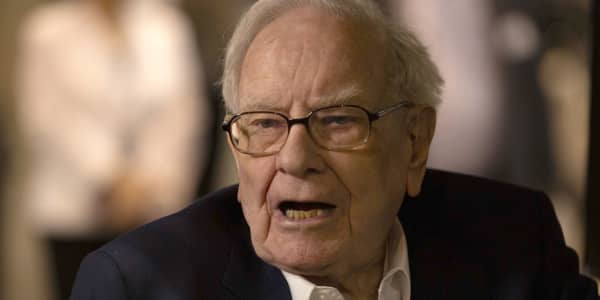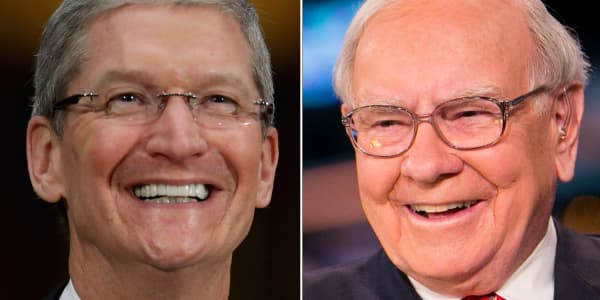Warren Buffett tells CNBC he doesn't buy the argument that raising taxes for the rich would derail the nation's economic recovery.
In a taped interview with Becky Quick, Buffett says that while $250,000 in annual income is not necessarily his definition of "rich", he does think it is a "little obscene" that the tax system has gotten "tilted toward guys like me" over the last 20 years.
"When a country needs more income, and we do -- we're only taking in 15 percent of GDP ... they should get it from the people that have it."
While Buffett acknowledges that a compromise may become necessary, he thinks President Obama should be "pretty tough" on insisting that the expiring Bush-era tax cuts are extended only for the middle class and not the rich.
Here's the portion of the interview as aired on the 8a ET hour of Squawk Box this morning. Becky started by asking Buffett what kind of person should replace outgoing White House economic adviser Larry Summers:
WARREN BUFFETT: It would be, it would be nice if he, if you could find somebody that the American people, and American business, felt good about. On the other hand, you can't have somebody that goes off, totally off the reservation, if you put 'em in there. I mean, you know, (former General Electric Chairman) Jack Welsh might be a wonderful guy, but I think you'd be a little nervous if you were the administration and you put him in that position. But you need somebody that, of that stature going in. And I don't think it's, I don't think it's that important whether they're a trained economist or not. But no, they may disagree with me on that.
BECKY QUICK: So, you would like to see someone with a business background, who's been a leader in business?
BUFFETT: Yeah. And who has the respect, not only of business, but the American people generally. I think that, I just think it's important that, that people feel better about their government and they've got to be given some reason to feel better about their government.
BECKY: Any ...
BUFFETT: You know, people talk about this being an uncertain time. You know, all time is uncertain. I mean, it was uncertain back in 2007, we just didn't know it was uncertain. It was uncertain on September 10th, 2001. It was uncertain on October 18th, 1987, you just didn't know it. We always live in an uncertain world. What is certain is that the United States will go forward over time.
BECKY: Tax policy has been another huge topic as the tax cuts are due to expire....
BUFFETT: Right.
BECKY: ... if they're not renewed. The President has put forth his position. Which is that-- they should be extended only for the middle class and not for the upper three percent. Peter Orszag, his outgoing budget director, said that he'd like to see that, too. But if it's not politically feasible, he'd rather see tax cuts passed for everyone than for no one. What do you think?
BUFFETT: Well, I don't think they'll end up being passed for no one. So, I think that — but Peter did put the argument that way. He, he didn't say this is the most desirable policy, he just said this is the most politically feasible policy. But the way the tax system has gotten tilted toward guys like me over the last 20 years is, as opposed to the middle class, you know, in my view, is a little obscene. So, I think, I'm not saying $250,000 necessarily. But at the high end, and the people who are getting their huge incomes through capital gains and, I just, I just think that when a country needs more income and we do, we're only taking in 15 percent of GDP, I mean, that, that, when a country needs more income, they should get it from the people that have it.
BECKY: You think it's okay to raise taxes at a time when the economy's uncertain?
BUFFETT: I think, sure. On some people. Yeah. I don't want to raise 'em on 90, you know, 98 percent of the people, but, but, no, I think the inequities that have gone into the tax code in the last 20 or 30 years compared to the situation that existed when this country was very prosperous in 1960, 1970, 1980 and so on, I think it's, I just think it's been tilted toward the rich.
BECKY: You said that you think it is politically feasible to get something passed, but if the President has to compromise to get something through, do you think he should?
BUFFETT: In the end, he has to do something. I mean, that, the laws expire by their nature. No, I, but, I, I'd play pretty tough if I was him (LAUGHS).
Current Berkshire stock prices:





